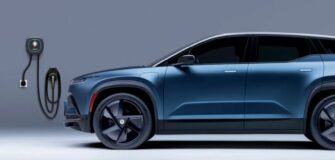Why ICE Car Buyers Might Soon Regret Their Decision, According to Rivian CEO
In the swiftly changing automotive industry, the decisions we make today can have profound implications for our future. Rivian CEO RJ Scaringe recently made a headline-worthy statement: “People purchasing ICE cars will soon come to regret their choice.” This assertion has sparked discussions about the future of the automotive sector, the ascent of electric vehicles (EVs), and the potential remorse that conventional Internal Combustion Engine (ICE) car buyers may experience. In this article, we will delve into Scaringe’s statement to comprehend why those opting for ICE cars might soon find their choices regrettable and investigate the growing allure of electric vehicles.
The Transition Towards Electric Vehicles
RJ Scaringe’s statement is grounded in the ongoing shift toward electric vehicles, driven by several compelling factors:
1. Environmental Concerns: Climate change is a global concern, and the automotive industry plays a pivotal role in carbon emissions. EVs produce zero tailpipe emissions, positioning them as a more environmentally conscientious choice. Governments worldwide are enacting stricter emission regulations, creating incentives for EV adoption.
2. Technological Advancements: The field of EV technology has made substantial progress in recent years. Batteries have become more efficient and cost-effective, leading to improved range and reduced costs. Additionally, advances in charging infrastructure render EV ownership increasingly convenient.
3. Cost-Efficiency: While EVs may involve a higher initial investment, their lower operational expenses can result in substantial savings over time. EVs benefit from fewer moving parts, leading to reduced maintenance and repair costs. Furthermore, electricity costs typically run lower than gasoline or diesel expenses.
4. Innovation and Performance: Electric vehicles are renowned for their immediate torque delivery and smooth, noiseless operation. Several EV manufacturers, including Rivian, are pushing the boundaries of innovation by offering remarkable performance and features that ICE cars cannot match.
Why ICE Car Buyers May Harbor Regrets
RJ Scaringe’s prognostication that ICE car buyers will eventually rue their decision stems from the rapid evolution of electric vehicle technology and the changing market dynamics. Here are some primary reasons why traditional ICE car buyers may encounter feelings of remorse:
1. Depreciation: As EV adoption rates soar, ICE car resale values might depreciate more swiftly. Consequently, purchasers of conventional vehicles could face more substantial depreciation, rendering it a less financially prudent choice in the long term.
2. Limited Access: Certain regions are contemplating bans or stringent limitations on ICE cars in the near future to combat air pollution and minimize emissions. Individuals owning ICE vehicles in such areas may find themselves grappling with limited access to specific locations or subject to additional fees and constraints.
3. Fuel Expenses: As governments incentivize EV adoption and enact stricter emissions standards, the cost of gasoline and diesel fuel may escalate. This could translate into elevated fuel costs for ICE car owners.
4. Advancements in EVs: Electric vehicles are in a perpetual state of enhancement. Future EV models are likely to offer extended ranges, swifter charging capabilities, and more advanced features. Those who have opted for ICE cars may lament missing out on these technological strides.
5. Charging Infrastructure: The expansion of EV charging networks enhances the convenience and accessibility of EV ownership. ICE car owners may find themselves at a disadvantage in terms of the ease of refueling their vehicles.
Conclusion
RJ Scaringe’s assertion serves as a poignant reminder of the transformative changes sweeping through the automotive industry. While traditional ICE cars have admirably served us for decades, the burgeoning allure of electric vehicles cannot be disregarded. As the environmental, technological, and economic merits of EVs become increasingly apparent, purchasers of ICE cars may indeed experience regrets in the not-too-distant future.
Nonetheless, it is vital to bear in mind that the transition to electric vehicles is an incremental process, and ICE cars will continue to populate our roads for a considerable period. Ultimately, the choice between ICE and EV hinges on individual inclinations, requirements, and circumstances. Nevertheless, as the EV landscape continues to evolve, staying informed about the evolving dynamics of the automotive sector is paramount to making informed choices aligned with a sustainable and economically sound future.









